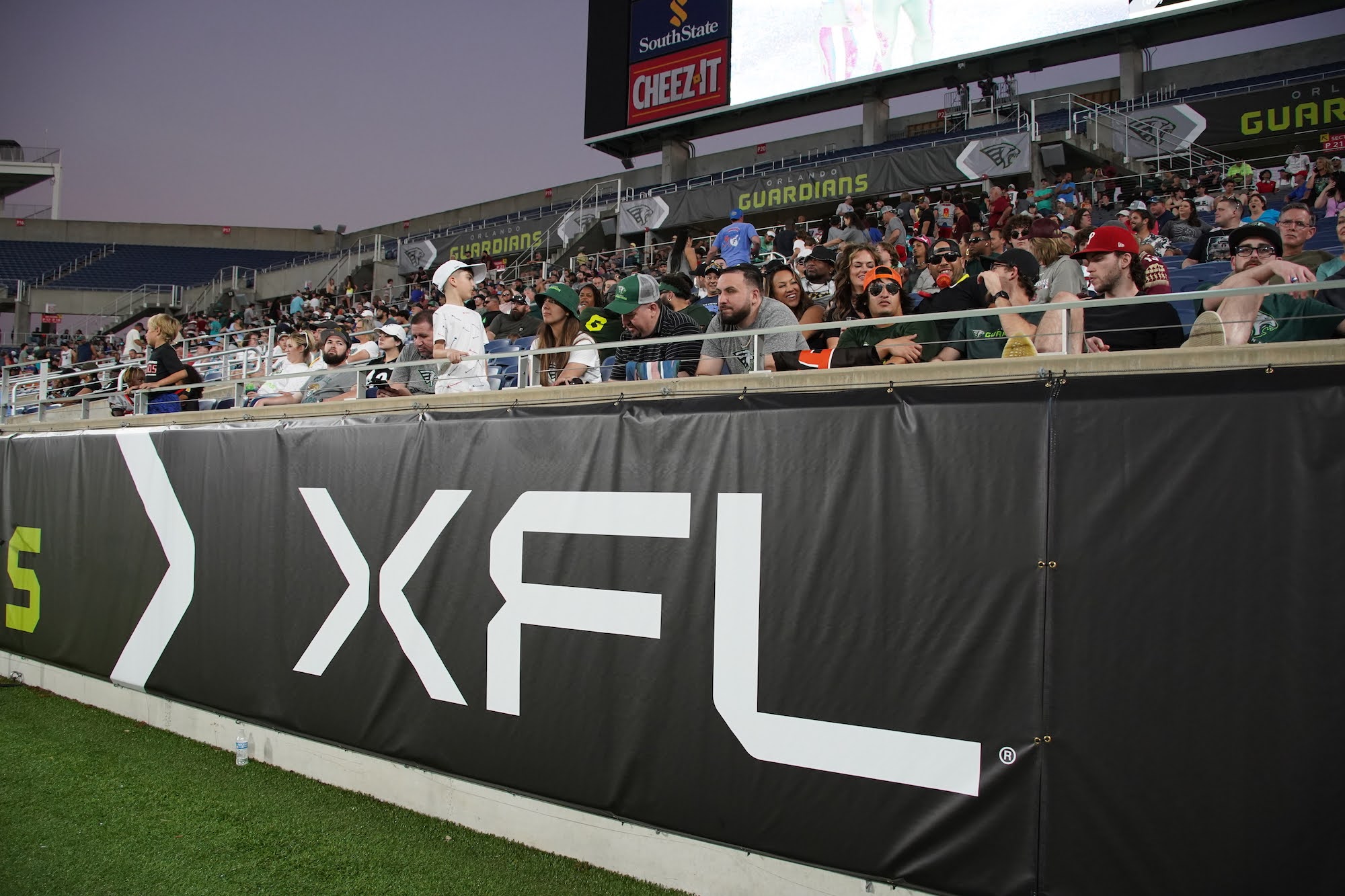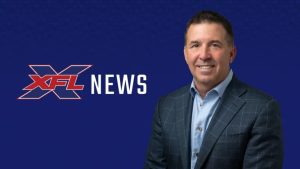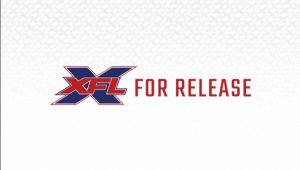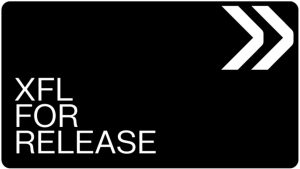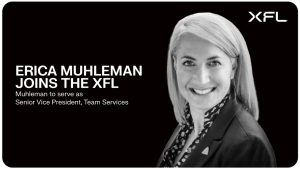
If you’re wondering how long the residual warm-and-fuzzies from the XFL Championship game and from the league diving head-first into an actual offseason (an XFL first) would last, the answer turned out to be “less than a month.”
XFL News Hub broke the news on Tuesday of significant personnel cuts at both the team and league levels. Among those being ousted: Chief Marketing Officer Janet Duch, and Vice President of Marketing Anthony Zucconi.
Duch had been with the league since 2019 when she served as the Team President of the New York Guardians. She was one of the first major hires of the new ownership group, announced in November of 2021. Zucconi was also associated with the Guardians franchise during its 2020 season as Head of Marketing. According to the XFL’s press release in March 2022 announcing Zucconi’s hire, his job was to “lead the brand and creative teams to drive the overall brand strategy and development of marketing programs across the league and its teams, oversee performance marketing and fan engagement experiences.”
On one hand, this news is an acknowledgment that the marketing of the XFL in 2023 was severely lacking, both nationally and in team cities. This is no surprise: I wrote about that topic back in October, four months before kickoff. These moves could come as a relief to some fans who were exasperated by what seemed to be the league’s unwillingness to engage the public at-large in the lead-up to and even during the season. While television ratings and attendance numbers were decent, more effort in the marketing department could result in steady increases in both of those metrics.
On the other hand, it does feel as if Duch and Zucconi are the scapegoats for a marketing strategy that failed to yield desired results. Those that follow the XFL closely were somewhat shocked when a Digiday article from February cited data that indicated the league had spent only $120,000 in marketing in 2023. It would seem anyone in Duch’s position would struggle to get the word out on that budget. Duch and Zucconi certainly aren’t the ones making financial decisions about how much to allot to that aspect of the company – it’s hard to advertise effectively on a shoestring budget. To use a football metaphor, it’s as if RedBird Capital, the money behind the league, was asking people in this department to catch a pass with two hands tied behind their back.
Sports Business Journal added additional details to the story, mentioning that the dismissals of Duch and Zucconi “were done after a review determined the league should shift from a brand marketing emphasis (seen as appropriate at launch) to a more revenue-driven approach to maximize ticket and sponsorship sales.” That doesn’t explain why Duch wouldn’t be qualified to lead such an effort; the shift in marketing shouldn’t necessarily have affected her job security. Unless there’s more to the story, it does feel as if Duch and Zucconi are taking the fall for the XFL coming up short in certain areas that carry consequential financial weight.
That’s not all, as those working at the team level have been cut back as well, though a statement the XFL supplied to XFL News Hub seems to indicate those are people who will no longer be considered “full-time” but could be brought back in a “seasonal” role.
In particular, the News Hub report states that “the Vegas team experienced a significant impact with the dismissal of its entire sales team.” Naturally, the Vipers were the weakest drawing market of the eight, attracting just over 6,000 fans per game, well below the league’s average across its other cities.
XFL News Hub’s Mike Mitchell has mentioned that a team being placed in Vegas was done at the behest of league co-owner and RedBird Capital partner Gerry Cardinale. The search for a place for the team to play lasted into 2023, eventually forcing the league to settle for 40-year old Cashman Stadium, a converted minor league baseball park with a 10,000-seat capacity. Vegas itself has seen its cup overflow with professional sports teams, as the NHL’s Golden Knights and the NFL’s Raiders have recently become tenants.
Writers covering the XFL could see issues with Vegas coming a mile away, but those issues didn’t deter league ownership. It seems now the Vipers sales team is being held to account for the mismanagement of the entire Vegas process. It would’ve been difficult for any sales team to find success under these circumstances: A short window to sell tickets in a location poorly set-up for football in a city teeming with pro sports team that have already planted their roots. Given the stumbling blocks, 6,000 fans per game seems quite reasonable as a draw. Like Duch and Zucconi, the Vegas sales team may not have performed well, but it doesn’t seem like they were given all the tools necessary to do so.
In making these moves, it appears RedBird Capital is setting out to fix some of the problems that fans and analysts had observed from afar, that being the advertising/marketing approach the league took in 2023, and the issues surrounding the Vegas franchise. That’s a good thing and shows ownership is clear-eyed about what went awry in its first year in charge. However, it seems as if those were self-inflicted wounds ownership brought upon itself with the lack of a marketing budget and the selection of Vegas as a home city in the first place.
It’s understandable that RedBird wants to make the XFL a viable brand (i.e. a moneymaker) and is acting quickly and swiftly to ensure that they get a return on their investment – that’s what private equity firms do. We don’t have many alternatives other than to take RedBird at face value at this point that what they’re doing will move the XFL forward in its second season. Ultimately, the proof will be in how they fill out the now vacant team-level positions, and what the “new” marketing philosophy will look like. With a number of people taking the fall in these cutbacks, there are no more excuses: If these areas don’t improve in 2024, RedBird will only have itself to blame.

